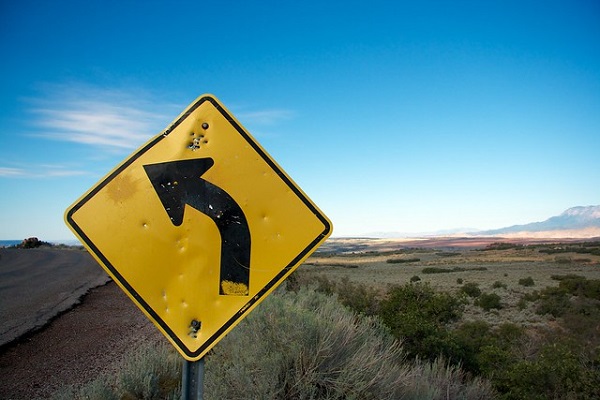
–>
September 4, 2022
Those holding liberal views and the principles that go with them are very different from those of us who claim to be conservatives or libertarians. The contrast between the left and right that make up the halves of America has never been more pronounced — nor, I would argue, more hazardous to our country’s health. With midterm elections coming up in just about ten weeks’ time, this might be the right moment to reflect on just how different the two Americas are.
‘); googletag.cmd.push(function () { googletag.display(‘div-gpt-ad-1609268089992-0’); }); }
The overarching differences
Let’s start with traditional conservatives. By traditional, I am referring to a set of values that have transcended many generations. Some of them are love of country, respect for authority and the rule of law, trust in our institutions, belief in personal accountability, fidelity to our Constitution and Bill of Rights, trust in our courts (and juries) to fairly adjudicate the cases before them and mete out appropriate punishment to the guilty, confidence in our schools and teachers to educate our children passionately but objectively, respect for our military service members and law enforcement organizations for the dangerous jobs they do, and many more, not the least of which are found in the Christian Ten Commandments.
In the past, those core values have been the touchstone we would go to when we were wrestling with a thorny question. Would our opinion track with our basic values? In short, could we look at ourselves in the mirror and say, “Yes, that is my belief, and I will defend it because I am a principled person”?
‘); googletag.cmd.push(function () { googletag.display(‘div-gpt-ad-1609270365559-0’); }); }
Today, there are two Americas and two basic ideologies that make up those Americas. One is rooted in a steadfast adherence to the values I outlined above, and the other comprises people who believe that principles are situationally dependent.
What is situational dependency? It simply means that one’s principles may be altered or discarded if certain situations require it. For instance, a person can believe that life is sacred but that some lives are more sacred than others, so the principle of protecting human life can be “modified” in order to selectively apply in specific situations. Abortion “rights” and the abolition of the death penalty are two examples.
There is no question in my mind that we are in the midst of a dangerous cultural civil war and that the battle lines on many cultural issues have been sharply drawn and the armies conscripted for service. As is usual with any civil war, there are more than just two opposing sides. There is a third group that hasn’t as yet chosen sides and will try to “sit out the conflict” and see which side will win (and will then promptly throw in with the winner).
This group is the real unprincipled one. Their only allegiance is to expediency, morality be damned. They are worse than fence-sitters who cannot make up their minds because of their confusion. Their motives are born of deep and abiding self-protection and greed. They could not care less about their neighbors, their community, or their country and have nothing in common with the brave men who founded our republic or fought for its independence and freedom for over two centuries. They are the ultimate carpetbaggers — unscrupulous opportunists who would betray anyone and anything to feather their own nests.
That doesn’t stop many American politicians from pandering to this group with highly targeted messages and proposals designed to get their vote. Our president is doing just that with a plan to “forgive” $300 billion of student debt and thereby buy himself and his party a few million votes in the upcoming elections. The same could be said about the open door policy of the Biden administration when it comes to our southern border. “Y’all come” is a very different principle from the prevailing but unenforced immigration laws that have protected the idea and the reality of a secure American border.
“Which world would you rather live in?” is the question we must ask ourselves before November 8. Here is a short summary of those two worlds:
‘); googletag.cmd.push(function () { googletag.display(‘div-gpt-ad-1609268078422-0’); }); } if (publir_show_ads) { document.write(“
The world of the left
The left’s world is dominated by, as I’ve stated, a belief in situational dependency coupled with might makes right. Leftists eschew actual democracy and fear free speech. They see the forced imposition of their cultural views as a holy crusade, and if anyone dares question that crusade’s legitimacy, he is summarily banned, doxxed, deplatformed, ostracized from polite society, vilified, and fired from his job — or accused of being a white supremacists, misogynist, homophobe, right-wing extremist, or domestic terrorist. Leftists have no qualms about offering up the names of the “opposition” to the media and to municipal, state, or federal authorities for later prosecution or persecution.
The left’s principles are not grounded in the Constitution or the Bill of Rights. Leftists regard those documents as mere quaint relics of a bygone past. They are irrelevant in today’s world — simply a reminder of what was a “mistaken quest by a bunch of old white elite men to preserve the existing power structure.” Everything that followed our victory of American independence was based on racism and disrespect for the underprivileged and oppression of the downtrodden masses. Therefore, everything and everyone must be made whole now. Reparations must be paid. Wrongs must be righted. Capitalism and wealth must be heavily regulated so that no one can profit too much from his efforts, and it must be fairly or as they say equitably dispersed — given to those in real need.
Children belong to the State, not to their parents. Terry McAuliffe said as much during his second gubernatorial campaign in Virginia in 2020, and school boards have been living out this policy in real time since the dawn of the pandemic. The government (read: the State) needs to be in control of your health and has the absolute authority over when an “emergency” is really an “emergency.” It can mandate who gets vaccinated and which jobs people might hold if they do or do not comply. It can shut down key industries and ruin our economy if it is in the government’s long-term vested political/cultural/economic interest, and it has carte blanche to bankrupt millions of families.
Leftists will reward those who sign on to their ideology with money, position, and power and have no objection to using racism to combat what they see as racism toward the “wrong group.” They will support gender self-identification and demand that you use specific words when speaking to those who self-identify as something other than their biological sex. They will be merciless in their punishment of all who attempt to resist by using the First Amendment, and they will take no prisoners in their culture war to remake America.
They will justify an open border policy by playing on our heartstrings. (“Oh, those poor immigrants fleeing from their badly managed countries. They must be given amnesty from our laws and moved to the front of the citizenship queue.”) Should we object, we will be called out as racists who support oppressing poor brown people. Immigration laws must be set aside, they argue, for “humanitarian” reasons.
Violence, too, is situationally dependent, and the left’s definition of it is like a floating decimal point in the calculation of the fair application of the law. Resisters to the “new American order” will be branded as criminals, while the real criminals who prey upon the defenseless will not be prosecuted. A case in point is the comparison of those few arrested (but swiftly released) in the “summer of unrest” on the West Coast while those “insurrectionists” from the January 6 incursion into the nation’s Capitol Building are still sitting behind bars.
Hypocrisy fuels the left’s culture war. The left relies on the big lie(s) and billions of dollars in pay-offs from the federal government to keep its troops and voters in line.
The world of the right
The right is not blameless when it comes to turning away from its responsibilities to all Americans, but it is getting better at recognizing the existing inequities in our regulations, laws, and system. That said, the world of the right is not situationally dependent when it comes to its principles. The first principle it reveres is respect for the rule of law and for adherence to the Constitution and our Bill of Rights. The second principle forms the basis for deciding what is consistent with our historical traditional American values. Those include the even-handed application of a moral code of fairness in all situations that respects the rights of the individual and the collective, simultaneously, but which assures that individual rights are never trumped by an ideological view of the collective’s right of pre-eminence.
Much more can be said of the right’s “worldview” of America in practice, but the glaring difference between a situationally dependent political ideology and one that is grounded in the basic precepts of self-governance and individual expression is unmistakable. Societies live or die by their principles. They flourish or they rot from their root systems on up. November 8 gives us another opportunity to choose which soil is best to grow the fruits of our next American harvest.
Stephan Helgesen is a retired career U.S. diplomat who lived and worked in 30 countries for 25 years during the Reagan, GHW Bush, Clinton, and G.W. Bush administrations. He is the author of twelve books, six of which are on American politics, and has written over 1,200 articles on politics, economics, and social trends. He operates a political news story aggregator website, www.projectpushback.com. He can be reached at [email protected].

Image: Chris Dodds via Flickr, CC BY-SA 2.0.
<!– if(page_width_onload <= 479) { document.write("
“); googletag.cmd.push(function() { googletag.display(‘div-gpt-ad-1345489840937-4’); }); } –> If you experience technical problems, please write to [email protected]
FOLLOW US ON
<!–
–>
<!– _qoptions={ qacct:”p-9bKF-NgTuSFM6″ }; ![]() –> <!—-> <!– var addthis_share = { email_template: “new_template” } –>
–> <!—-> <!– var addthis_share = { email_template: “new_template” } –>







